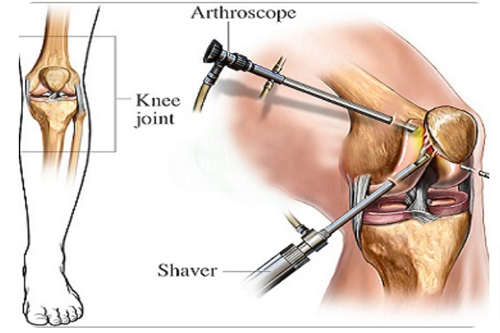Knee Replacement In Chhindwara

Knee Replacement In Chhindwara
Knee replacement, also known as knee arthroplasty, is a surgical procedure in which a damaged or diseased knee joint is replaced with an artificial implant, commonly made from metal, plastic, or ceramic materials. The surgery is often recommended for individuals suffering from chronic knee pain, reduced mobility, or severe joint damage due to arthritis, injury, or aging.
Knee replacement, also known as knee arthroplasty, is a surgical procedure that involves replacing a damaged or worn-out knee joint with an artificial implant. This surgery is typically recommended for individuals suffering from chronic knee pain, decreased mobility, or severe knee damage due to conditions like arthritis, injury, or age-related wear and tear.
Why is Knee Replacement Surgery Needed?
Knee replacement surgery is typically considered when conservative treatments like medication, physical therapy, and lifestyle changes no longer relieve symptoms.
- Osteoarthritis: The most common cause of knee joint pain, where the cartilage that cushions the knee deteriorates over time, causing pain, swelling, and stiffness.
- Rheumatoid Arthritis: An autoimmune disease that results in inflammation and damage to the joints, including the knee.
- Post-traumatic Arthritis: Arthritis that develops after an injury, such as a knee fracture or ligament damage.
- Knee Deformities: Abnormalities in the knee structure, often due to birth defects or developmental issues, that cause pain or mobility problems.
Types of Knee Replacement Surgeries
There are several types of knee replacement surgeries, depending on the severity of the condition and the patient’s needs:
- Total Knee Replacement (TKR): This is the most common form of knee replacement surgery, where both sides of the knee joint (the femur and tibia) and the kneecap are replaced with artificial components.
- Partial Knee Replacement (PKR): In this procedure, only the damaged portion of the knee joint is replaced, leaving the healthy parts intact. This is typically recommended for patients with limited knee damage.
- Minimally Invasive Knee Replacement: This technique involves smaller incisions and less muscle disruption, potentially leading to faster recovery and reduced pain post-surgery.
Benefits of Knee Replacement
Knee replacement offers a wide range of benefits for patients suffering from knee joint pain or stiffness. Some of the key advantages include:
- Pain Relief: Knee replacement is highly effective in relieving chronic knee pain, often providing long-term relief after surgery.
- Improved Mobility: After recovery, most patients experience an increase in knee function, allowing them to walk, climb stairs, and engage in daily activities without pain.
- Better Quality of Life: With less pain and better mobility, patients often report a significant improvement in their overall well-being and independence.
What to Expect During the Knee Replacement Procedure
- Pre-surgery Evaluation: Before surgery, your orthopedic surgeon will conduct a thorough evaluation, including medical tests, X-rays, and a review of your medical history, to determine if knee replacement is the right solution for you.
- Surgical Process: Knee replacement surgery typically takes about 1-2 hours and is performed under general or spinal anesthesia. The surgeon removes the damaged cartilage and bone, then replaces it with an artificial knee implant.
- Post-surgery Recovery: Recovery varies from person to person, but most patients spend 1-3 days in the hospital after surgery. Physical therapy is an essential part of recovery, helping to restore strength, flexibility, and range of motion in the knee.
Risks and Complications of Knee Replacement
While knee replacement surgery is generally safe, there are potential risks and complications to consider, including:
- Infection: Although rare, infections can occur after knee replacement surgery.
- Blood Clots: Blood clots, particularly deep vein thrombosis (DVT), are a potential risk after surgery.
- Implant Wear and Tear: Over time, knee implants can wear out or loosen, requiring revision surgery.
- Stiffness and Loss of Range of Motion: In some cases, patients may experience stiffness or limited motion in the knee joint after surgery.
Conclusion
Knee replacement surgery can offer significant relief from chronic knee pain, improve mobility, and restore quality of life for individuals with severe knee joint damage. If you are considering knee replacement, consult with an experienced orthopedic surgeon to evaluate your condition and determine the best treatment options for you.
